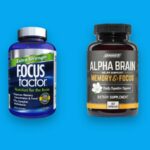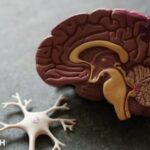
Table of Contents
Introduction
As a nootropic expert, I’m always looking for new and exciting ways to boost brain function and improve overall health. That’s why I’m excited to introduce you to Berberine, a natural compound gaining popularity for its numerous benefits. Berberine is a plant alkaloid found in various herbs, including barberry, goldenseal, and Oregon grape.
What sets Berberine apart is its distinctively bitter taste, which may not be everyone’s cup of tea but is worth trying for its potential health benefits. In this post, I’ll dive into the science behind Berberine and share some of its brain-boosting and digestive health benefits. So, let’s get started!
What is Berberine?
Berberine is a natural compound that’s classified as a plant alkaloid. It’s found in several herbs, including barberry, goldenseal, and Oregon grape. As I mentioned earlier, Berberine has a distinctively bitter taste, which is why it’s often used as a natural food flavouring. In addition to its culinary uses, Berberine has recently gained attention for its potential health benefits.
One of the most notable benefits of Berberine is its cognitive-enhancing properties. This makes it a natural nootropic, which means it can boost brain function and enhance cognitive performance. Berberine achieves this by increasing blood flow to the brain, which helps to deliver vital nutrients and oxygen to brain cells. Additionally, Berberine has been shown to enhance the production of brain-derived neurotrophic factor (BDNF), a protein that promotes the growth and survival of brain cells.
Overall, Berberine is a natural compound that offers numerous health benefits, particularly for brain health. In the following sections, I’ll dive deeper into the science behind Berberine and share some of its brain-boosting and digestive health benefits.
Brain-Boosting Benefits of Berberine
Regarding brain health, Berberine is a natural nootropic that can offer exciting benefits. Here are just a few examples of how Berberine can boost brain function:
Increased blood flow to the brain: Berberine has been shown to improve blood flow to the brain, which can help to increase the delivery of oxygen and nutrients to brain cells. This can improve brain function, including memory, attention, and overall cognitive performance.
Enhancement of BDNF production: As I mentioned earlier, Berberine can enhance the production of brain-derived neurotrophic factor (BDNF), a protein that plays a key role in the growth, survival, and function of brain cells. By increasing BDNF levels, Berberine can improve brain function and protect against age-related cognitive decline.
Antioxidant properties: Berberine has antioxidant properties, which can help protect the brain from damage caused by free radicals. This can help prevent oxidative stress, inflammation, and other factors contributing to brain aging and cognitive decline.
Overall, Berberine is a promising natural compound that can offer numerous brain-boosting benefits. However, as with any nootropic or dietary supplement, it’s important to research and talks to your doctor before incorporating Berberine into your routine.
Digestive Health Benefits of Berberine
In addition to its cognitive-enhancing properties, Berberine also offers some exciting digestive health benefits. Here are a few examples:
Anti-inflammatory effects: Berberine has been shown to have anti-inflammatory effects in the gut, which can help to reduce inflammation and promote healthy digestion. This can be particularly beneficial for individuals with digestive disorders, such as inflammatory bowel disease (IBD).
Antimicrobial properties: Berberine has antimicrobial properties, which can help fight off harmful bacteria and other pathogens in the gut. This can help to promote a healthy balance of gut bacteria and prevent the overgrowth of harmful bacteria.
Blood sugar regulation: Berberine has been shown to help regulate blood sugar levels, which can benefit individuals with diabetes or other blood sugar disorders. This can also help to reduce the risk of developing these conditions in the first place.
Overall, Berberine is a natural compound that can offer some exciting digestive health benefits in addition to its cognitive-enhancing properties. However, it’s important to note that more research is needed to fully understand these benefits’ mechanisms and determine the most effective doses and forms of Berberine for digestive health. Talk to your doctor before incorporating new dietary supplements into your routine.
How to Incorporate Berberine into Your Diet
If you’re interested in incorporating Berberine into your diet, there are several ways. Here are a few options:
Supplements: Berberine supplements are available in capsule or tablet form from many health food stores and online retailers. It’s important to choose a high-quality supplement from a reputable brand and to follow the dosage instructions carefully.
Herbal teas: You can also find Berberine as herbal teas, which can be a delicious and easy way to enjoy its health benefits. Look for teas that contain barberry, goldenseal, or Oregon grape.
Culinary uses: Berberine is also a natural food flavouring in some cuisines, particularly in Iran and other parts of the Middle East. It has a distinctively bitter taste and is often used in savoury dishes like stews and soups.
However, it’s important to note that Berberine can interact with certain medications, including antibiotics and blood pressure. Therefore, it’s always a good idea to talk to your doctor before incorporating Berberine into your diet, especially if you take any prescription medications.
Conclusion
In conclusion, Berberine is a natural compound with many potential health benefits. There are many reasons to consider incorporating Berberine into your diet, from improving cognitive function to promoting digestive health. However, it’s important to remember that more research is needed to fully understand the mechanisms behind these benefits and determine the most effective doses and forms of Berberine for different health conditions.
If you’re interested in trying Berberine, talk to your doctor first, especially if you’re taking any prescription medications. As with any dietary supplement, it’s important to choose a high-quality product from a reputable brand and to follow the dosage instructions carefully.
In addition, it’s important to remember that dietary supplements are just one part of a healthy lifestyle. Eating a balanced diet, regular exercise, and managing stress are all important factors in maintaining optimal health and well-being.
So, go ahead and give Berberine a try – who knows, it might be the brain-boosting, gut-healing superfood you’ve been looking for!
References
Kwon Y. Potential brain-targeted metabolic role of berberine: implication in Alzheimer’s disease. Int J Mol Sci. 2019;20(18):4399. doi:10.3390/ijms20184399
Yin J, Xing H, Ye J. Efficacy of berberine in patients with type 2 diabetes mellitus. Metabolism. 2008;57(5):712-717. doi:10.1016/j.metabol.2008.01.013
Guo Y, Popovic L, Ding W, Wang Q. Protective effects of berberine against doxorubicin-induced cardiotoxicity: a review. Evidence-Based Complementary and Alternative Medicine. 2021;2021:8822104. doi:10.1155/2021/8822104
Han J, Lin H, Huang W. Modulating gut microbiota as an anti-diabetic mechanism of berberine. Medical Science Monitor. 2011;17(7):RA164-RA167. doi:10.12659/msm.881738
Zhou Q, Li M, Wang X, Li Q, Wang T, Zhu J. Berberine attenuates intestinal mucosal barrier dysfunction in type 2 diabetic rats. Front Pharmacol. 2020;11:635. doi:10.3389/fphar.2020.00635
Huang W, Zhang X, Chen W, et al. Berberine improves cognitive impairment by promoting autophagic clearance and inhibiting production of β-amyloid in APP/tau/PS1 mouse model of Alzheimer’s disease. Exp Gerontol. 2020;138:111010. doi:10.1016/j.exger.2020.111010








